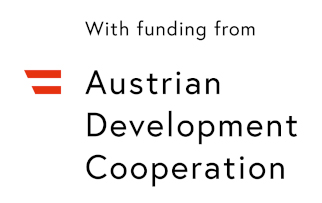About
Context
Every day, about 810 women die from preventable causes during pregnancy and childbirth. Sub-Saharan Africa alone accounted for roughly two-thirds (196,000) of maternal deaths in 2017.1
Unequal access to health services and coverage of priority sexual, reproductive, maternal, newborn, child, and adolescent (SRMNCAH) interventions is sub-optimal both in development and humanitarian settings. Moreover, women and girls who experience sudden and slow-onset emergencies are at increased risk of gender-based violence and sexually transmitted infections, including HIV, unintended pregnancy, maternal illness, and death.
Fast Facts
- Every day, about 810 women die from preventable cause during pregnancy and childbirth.
- Sub-Saharan Africa alone accounted for roughly two-third (196,000) of maternal deaths in 2017.
- 20 million people are affected by crises in the Horn of Africa.
Source: WHO 2017, UN News 2022
What is the issue?
As of April 2022, there were 20 million people2 affected by crises in the Horn of Africa (HoA) region, with a negative impact on the most vulnerable population's ability to access quality and affordable SRMNCAH services. Women and girls in these contexts often face violence and discrimination which impact their ability to fully participate in society and seek out health services.
Programmes in humanitarian settings must consider the realities faced by women and girls and deliver strategic and targeted responses to improve SRMNCAH. Responses must remove the existing gender biases and other barriers in the social, cultural, institutional, legal, and economic structures that hinder women, children, and adolescents from having equal access to health services.
How did POWER address these issues?
UN Women's Programme on Women's Empowerment in Sexual, Reproductive, Maternal, Newborn, Child, and Adolescent Health rights in humanitarian settings in the Horn of Africa Region (POWER), with generous funding from the Austrian Development Agency, supported women and adolescents’ reproductive rights, gender equality, and well-being, by improving their access to information, opportunities and resources, as well as promoting community support for women, children, and adolescents to demand and enjoy their rights to health services, including on sexual and reproductive health.
POWER contributed to UN Women’s global programming on Health and HIV, whose goal is for every woman, every child, every adolescent girl, everywhere to demand her right to quality SRMNCAH services. From December 2019 to June 2022, POWER was implemented in partnership with governments, UN agencies, community and religious leaders, and women's rights organizations in the implementation locations.
What is UN Women’s programme doing to address this issue?
- Established rights-based national and local SRMNCAH frameworks in humanitarian settings.
- Improved promotion of equal gender norms, attitudes, and practices on women’s rights to SRMNCAH in humanitarian settings.
- Empowered women and girls to exercise their SRMNCAH rights and seek services in humanitarian settings.
POWER was implemented in the Horn of Africa region, with a focus on selected refugee camps and host communities in Gambella region, Ethiopia, and West Nile, Uganda.
Notes

